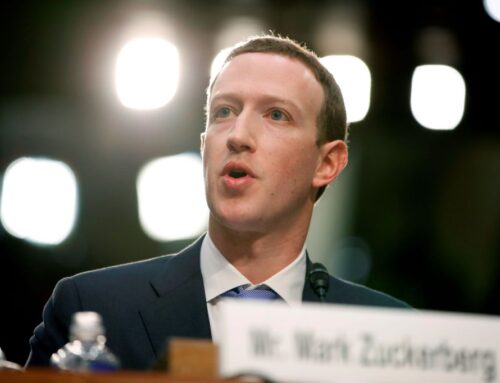Could markets be facing an ‘everything bubble’? Investors are divided
November 23, 2025
Global stocks have fluctuated wildly over the past week, as concerns about AI valuations hang over equity markets. Some respite from a four-day sell-off followed Nvidia ‘s earnings release on Wednesday, but its own gains were quickly reversed during Thursday’s trading session as New York-listed stocks lost further ground . Friday saw U.S. stocks rebound into positive territory , while Asian chip shares took a battering , and a sell-off in Europe was reignited . ‘Everything bubble’ The possibility that equity markets are in an AI bubble has been a hot topic for months, with investors scrambling to work out if companies can deliver on the trillion-dollar AI hype . But Dan Hanbury, who co-manages the Global Strategic Equity strategy at investment manager Ninety One, told CNBC that while the formation of an AI bubble appears to be “the ultimate question at the moment,” off-kilter prices stretch far beyond the realms of artificial intelligence. “I think if you step back and look at valuations, it’s very hard to argue there’s not a bubble in the U.S. market,” he conceded. But despite there being “lots of red flags” in equity markets, Hanbury said market participants needed to take a broader view. “You have this phenomenal earnings growth, and there’s little sign of it weakening at this stage, [and at the same time] you’re getting a normalization of interest rates and discount rates,” he explained. “I don’t think we’re all the way through that, so I would argue that we are in a bit of what some would call the ‘everything bubble,'” Hanbury told CNBC. “I think we are still playing that out, which [affects] debt-backed instruments, bond markets, property — and how that feeds through to equity valuations — has created an everything bubble.” Bank of America’s November survey of 172 fund managers , who collectively manage assets worth $475 billion, found that the majority now believe global equity markets are overvalued. Questions have also been raised about valuations in other pockets of the market, such as European defense and global banks , which have posted huge gains this year, while other investors have voiced concern about a potential debt crisis . However, many of these conversations have been overshadowed by the AI trade. Hanbury said it was difficult to predict how the current situation might play out as the market, governments and central banks become more aware of valuation concerns. “So, really it’s a case of them trying to work out, how do I plot my way through this? And there’s this whole behavioral aspect in markets where you see fear and greed coming in, and how that impacts security prices,” he said. Oliver Jones, head of asset allocation at U.K. wealth management firm Rathbones, told CNBC he doesn’t believe markets are in an everything bubble — but didn’t rule out the possibility that a slight shift could cause one to form. “Equities in the U.S. — particularly in the tech sector and among companies seen as beneficiaries from investment in AI — are undoubtedly expensive by past standards,” he said. “However, unlike at the peak of dot com-mania a quarter of a century ago, equities are not uniformly expensive.” Jones noted that several signs associated with broader speculative excess seen in the past — such as a big pick-up in equity issuance or surging M & A activity — seemed to be absent in the U.S. and beyond. “That has not happened recently — even allowing for AI-related activity, all those measures are still subdued,” he told CNBC. “Major bubbles have often been preceded by sharp increases in total investment and in private debt too. But again, that has not happened recently.” But he warned: “If those things start to change, we should become more concerned about a broader bubble.” Toni Meadows, head of investment at BRI Wealth Management, agreed that he did not believe markets were embroiled in a so-called “everything bubble,” but noted that his team did not see a smooth course ahead. “We think there are signs of developing risks in the real economy around employment, and the ultimate impact of technology will make that worse at some point,” he told CNBC via email. “For now though, there aren’t clear signs that weakness will be prolonged.” However, Meadows conceded that there were risks investors should factor in. In the U.K., uncertainty has mounted ahead of the critical Autumn Budget , for example. “Managing a diversified portfolio that balances the risks is probably more advisable than committing new monies before the Budget in the UK,” he said. “The extent of the unwind only takes many of the popular tech stocks back to September levels. We entered this period with slightly elevated cash levels, so we are comfortable waiting for a better entry point.” Buying opportunities Michael Field, chief equity strategist at Morningstar, told CNBC on a call that while he was not “ignoring the risk of a bubble altogether,” he did not believe one had already formed in markets. “It doesn’t seem, from our view, to be the case that we’re in an everything bubble, thankfully,” he said. “How I would assess that is by looking at the headline numbers first.” At the time of the call on Wednesday, Field said U.S. stocks were trading at an almost 5% discount to Morningstar’s fair value estimate, while Europe was trading close to a 3% discount. “I would say we kind of err on the cautious side, and there have been plenty of times over the last couple of years where we’ve said markets are overvalued,” he added. “There are certainly red flags, some things we’re concerned about, but it’s not the case that we’re freaking out just yet about valuations or the companies themselves.” When it comes to Big Tech, Field said Tesla and Nvidia are overvalued, while Alphabet , Meta and Microsoft have further upside ahead. European healthcare — including Roche , GSK and Novo Nordisk — and tech stocks were also trading at good discounts, he argued, after being “punished … for most of this year.”
Related Post




